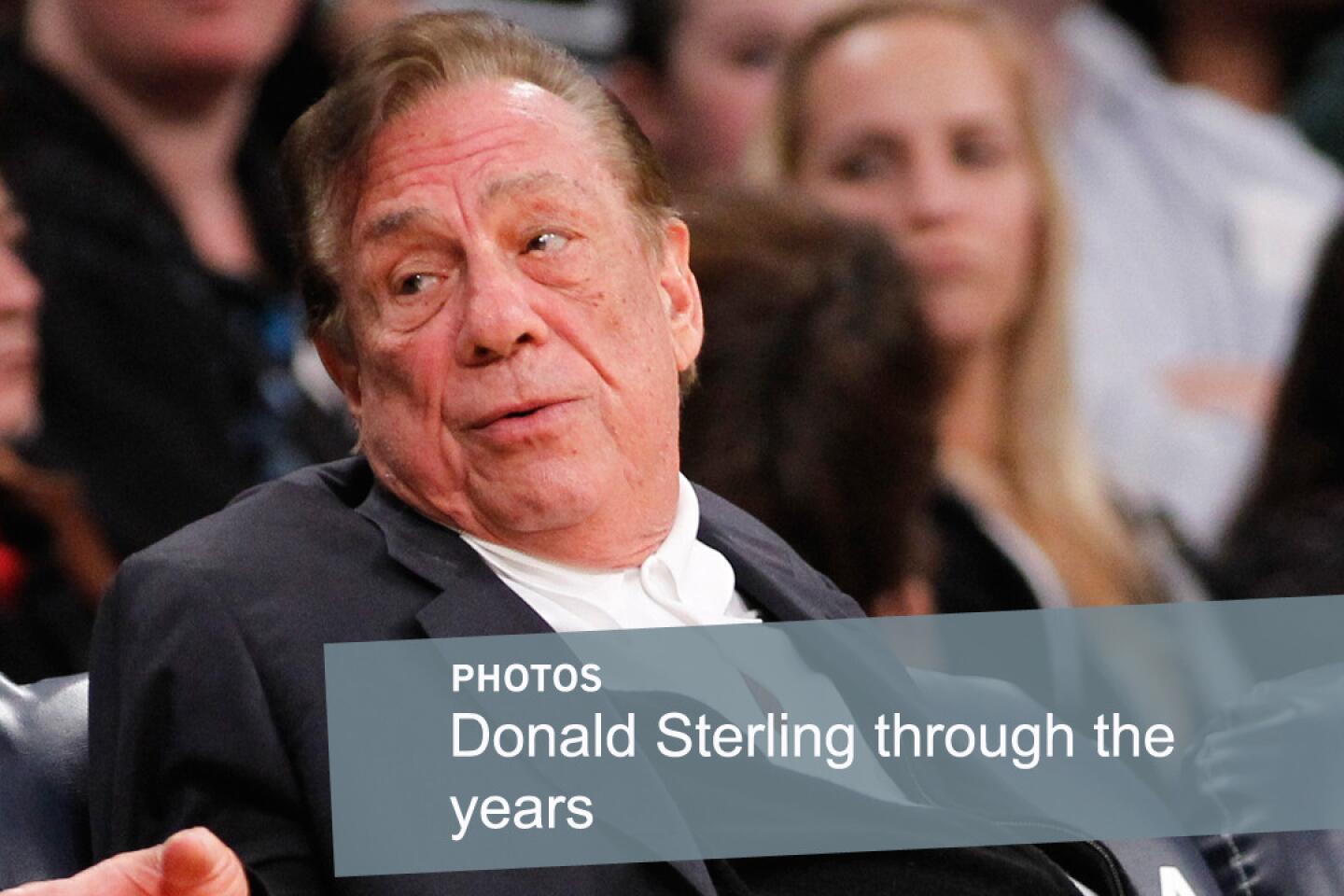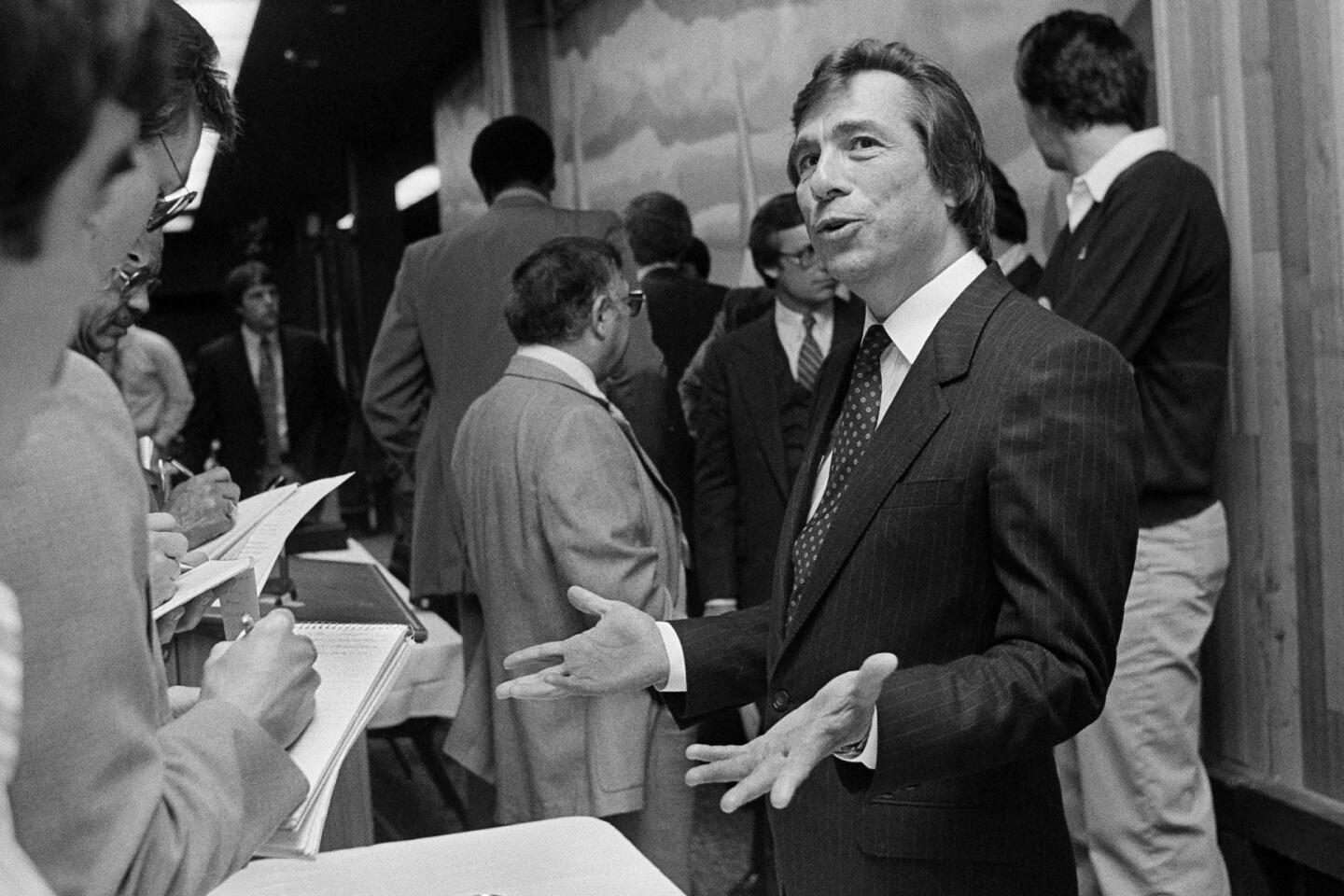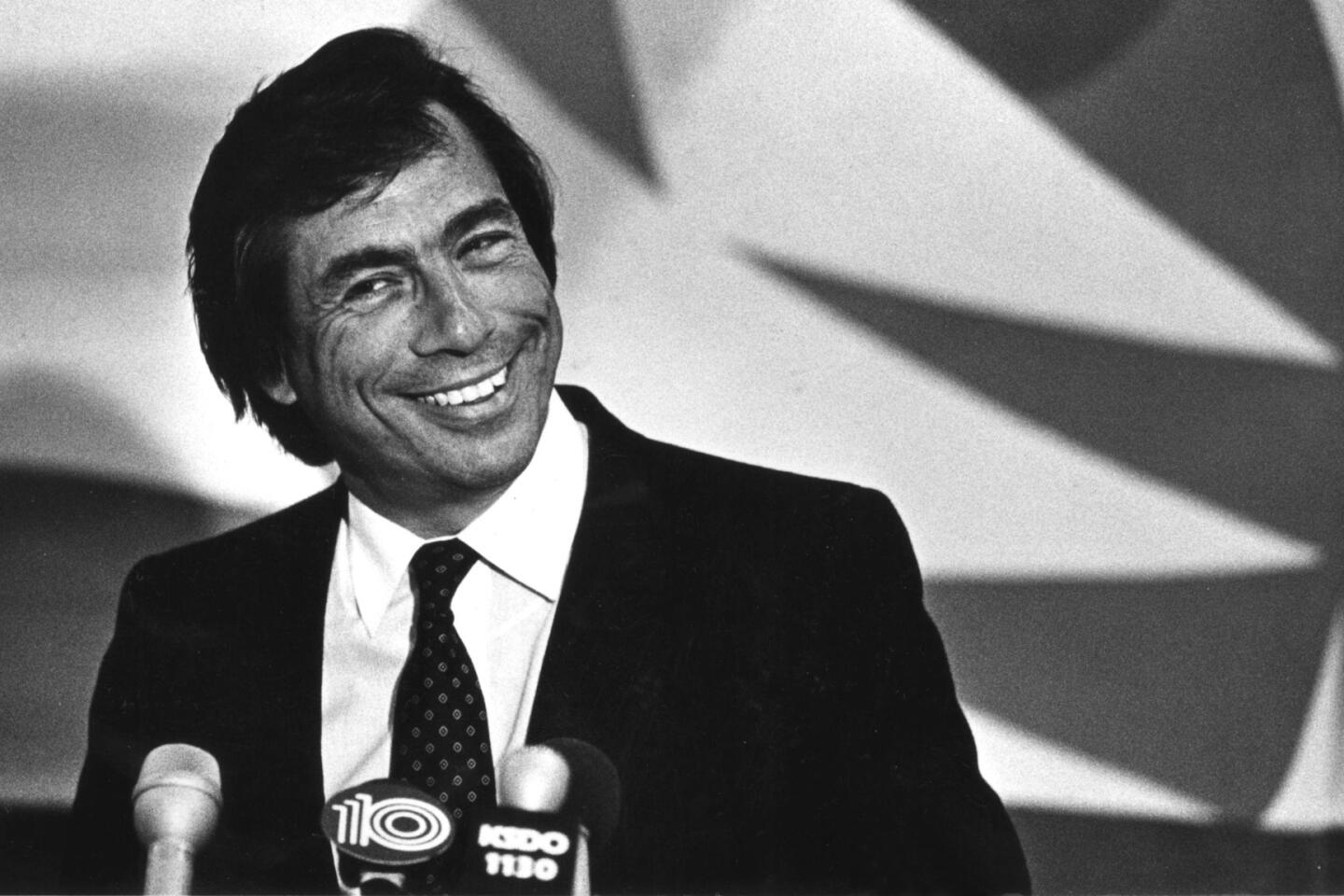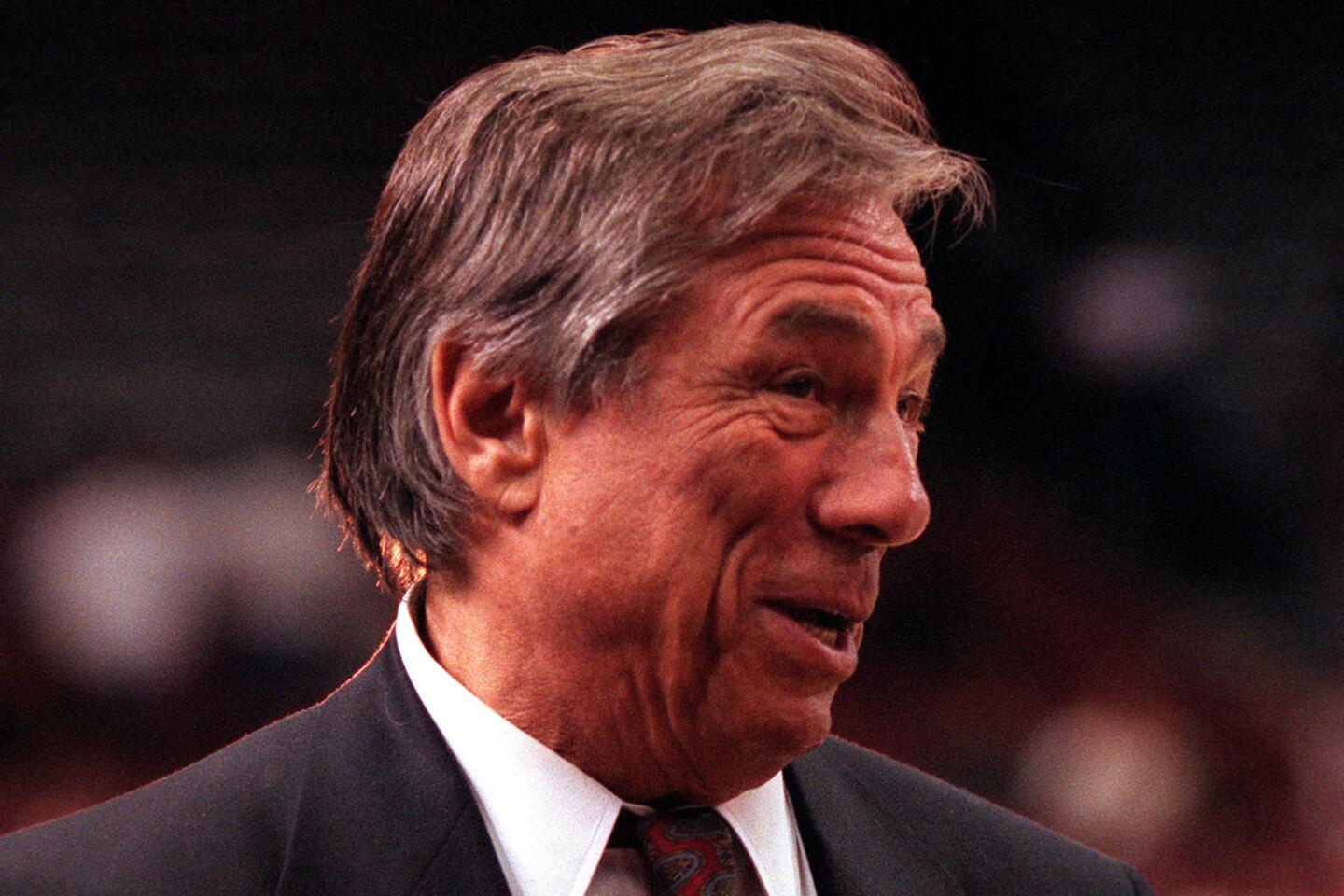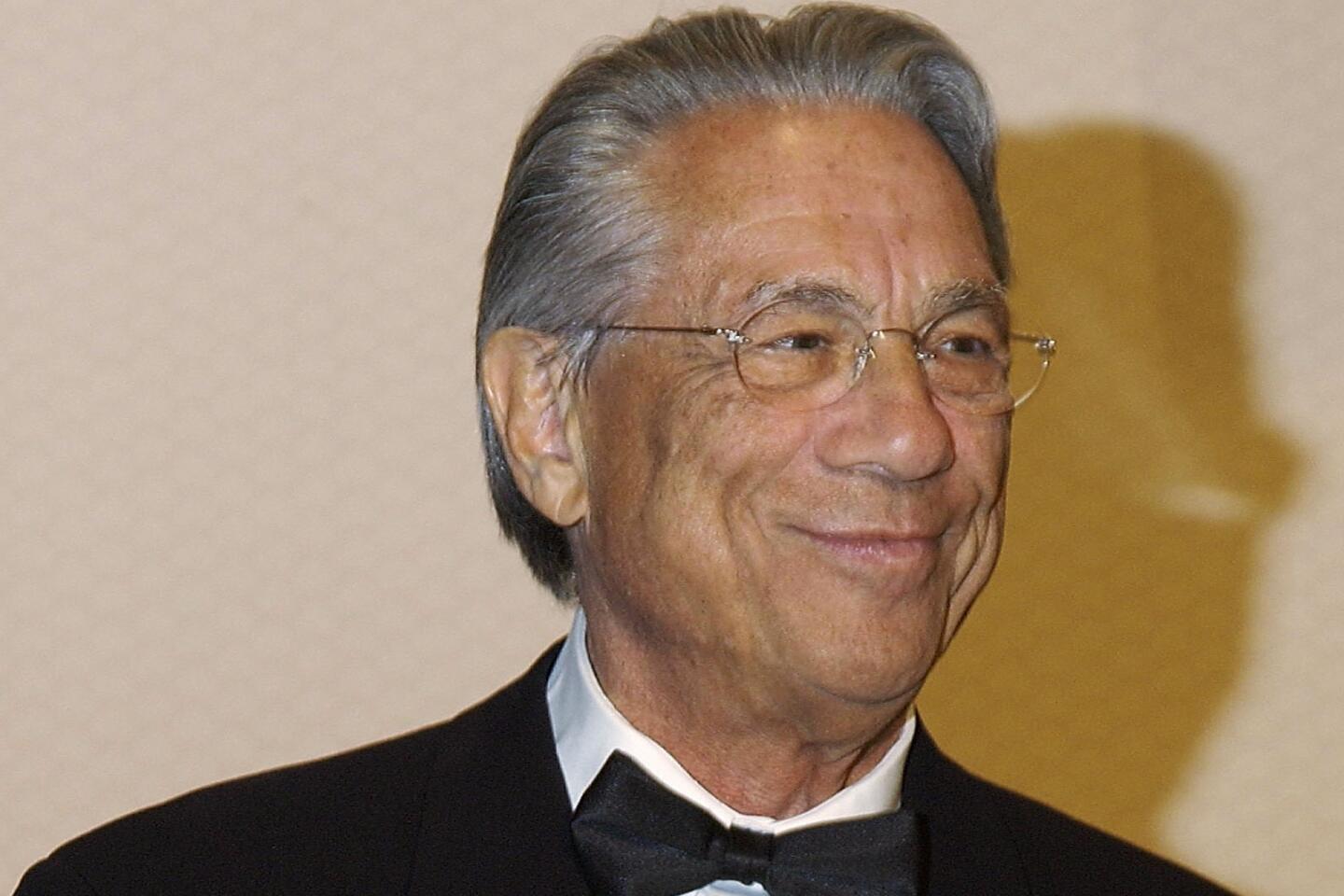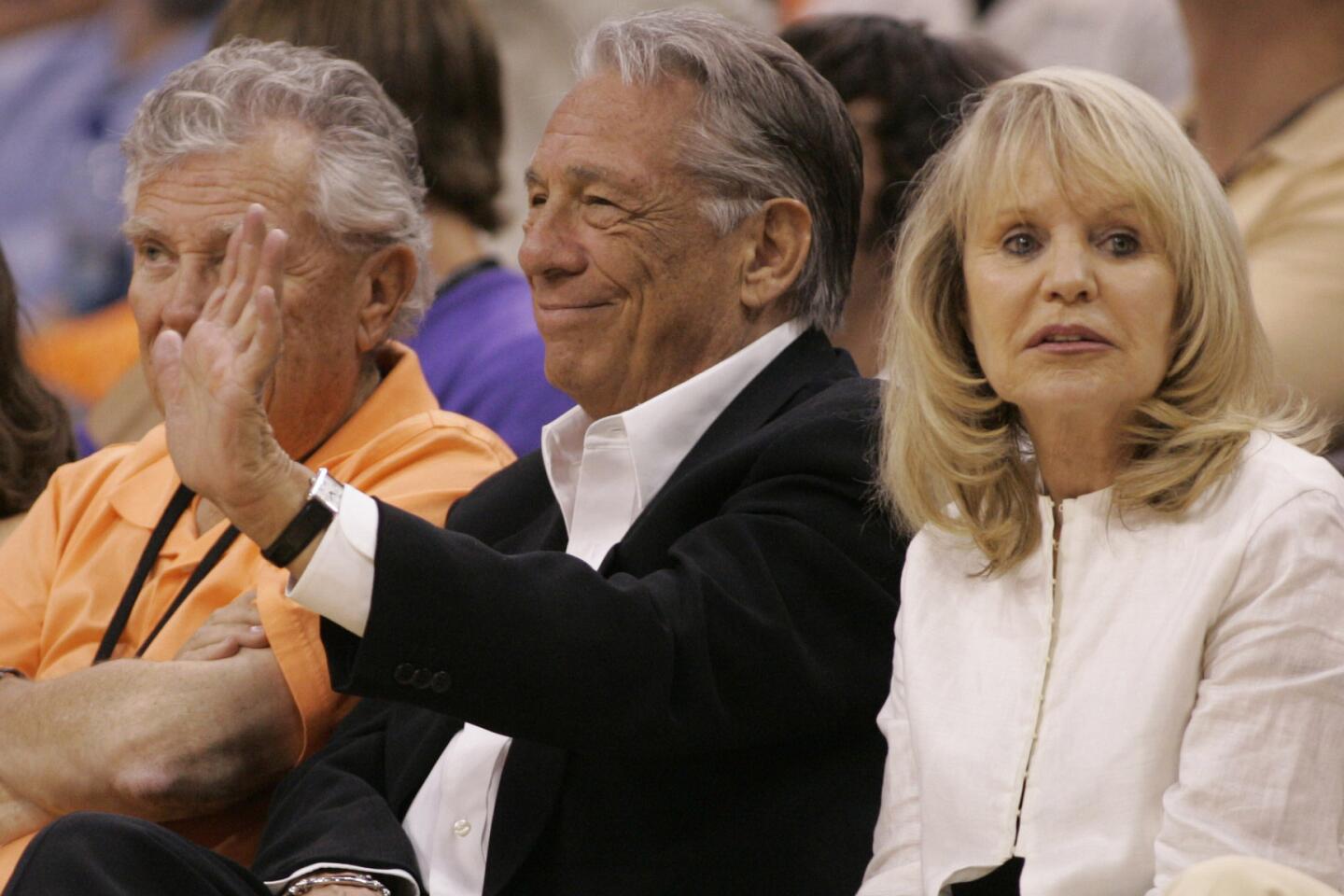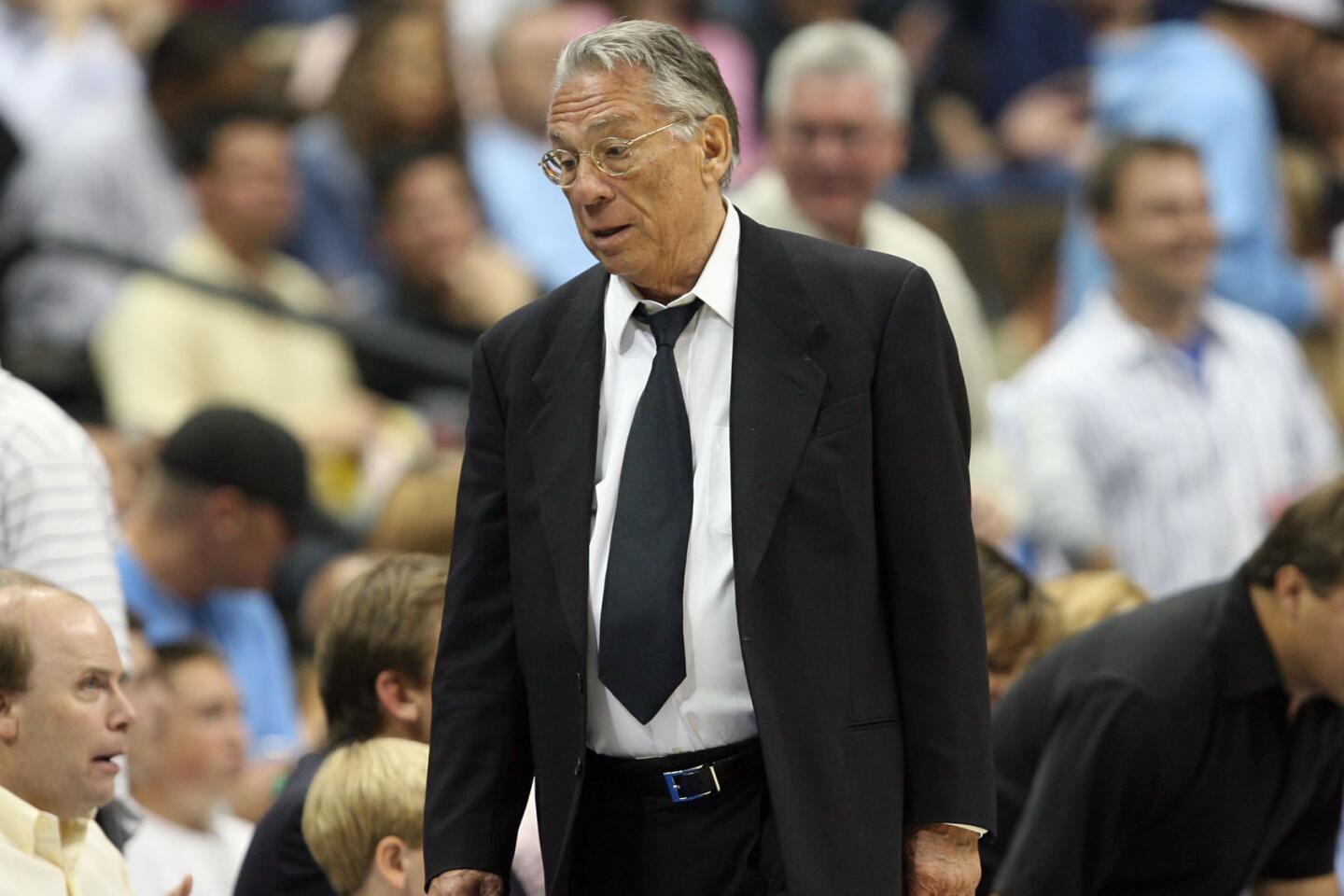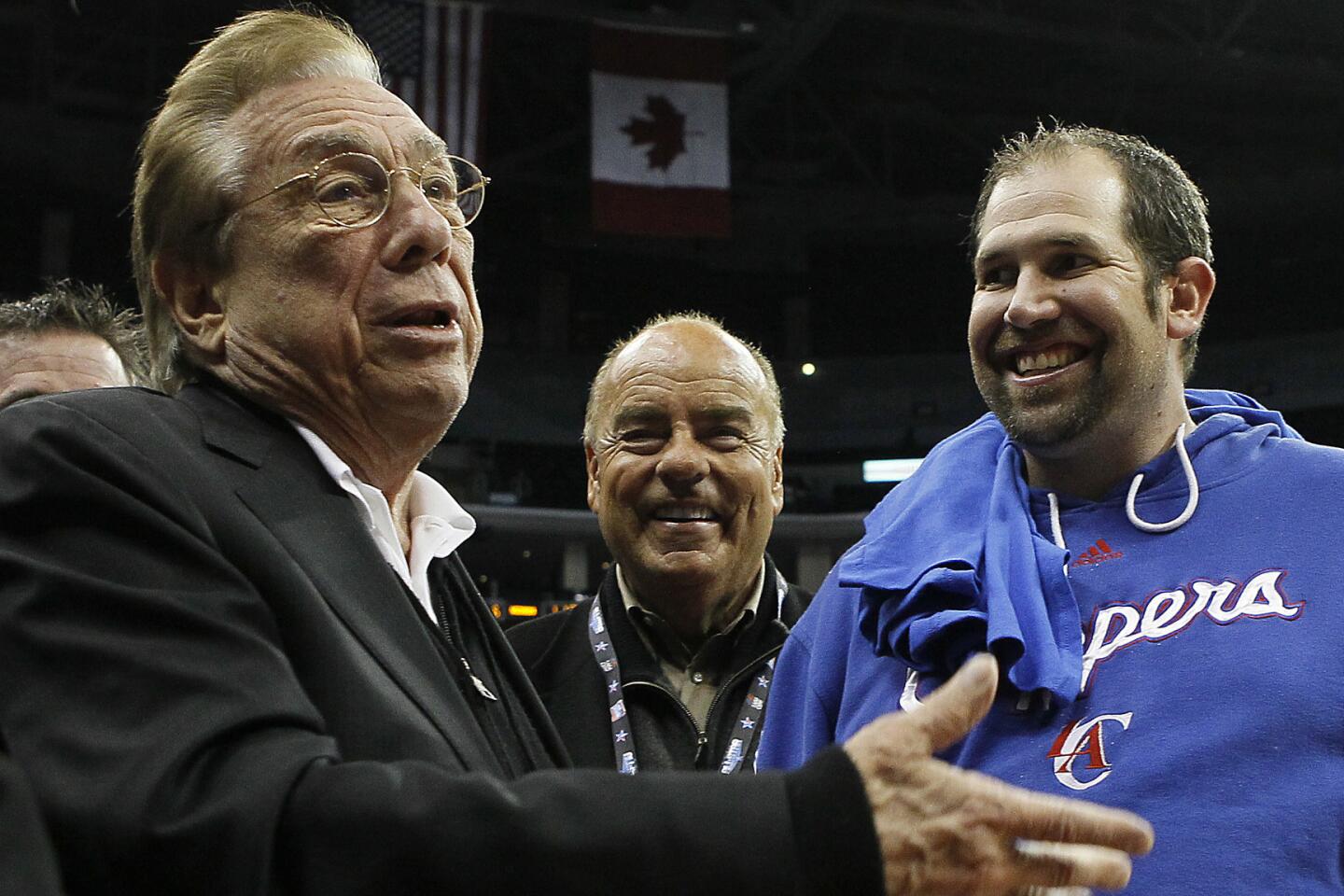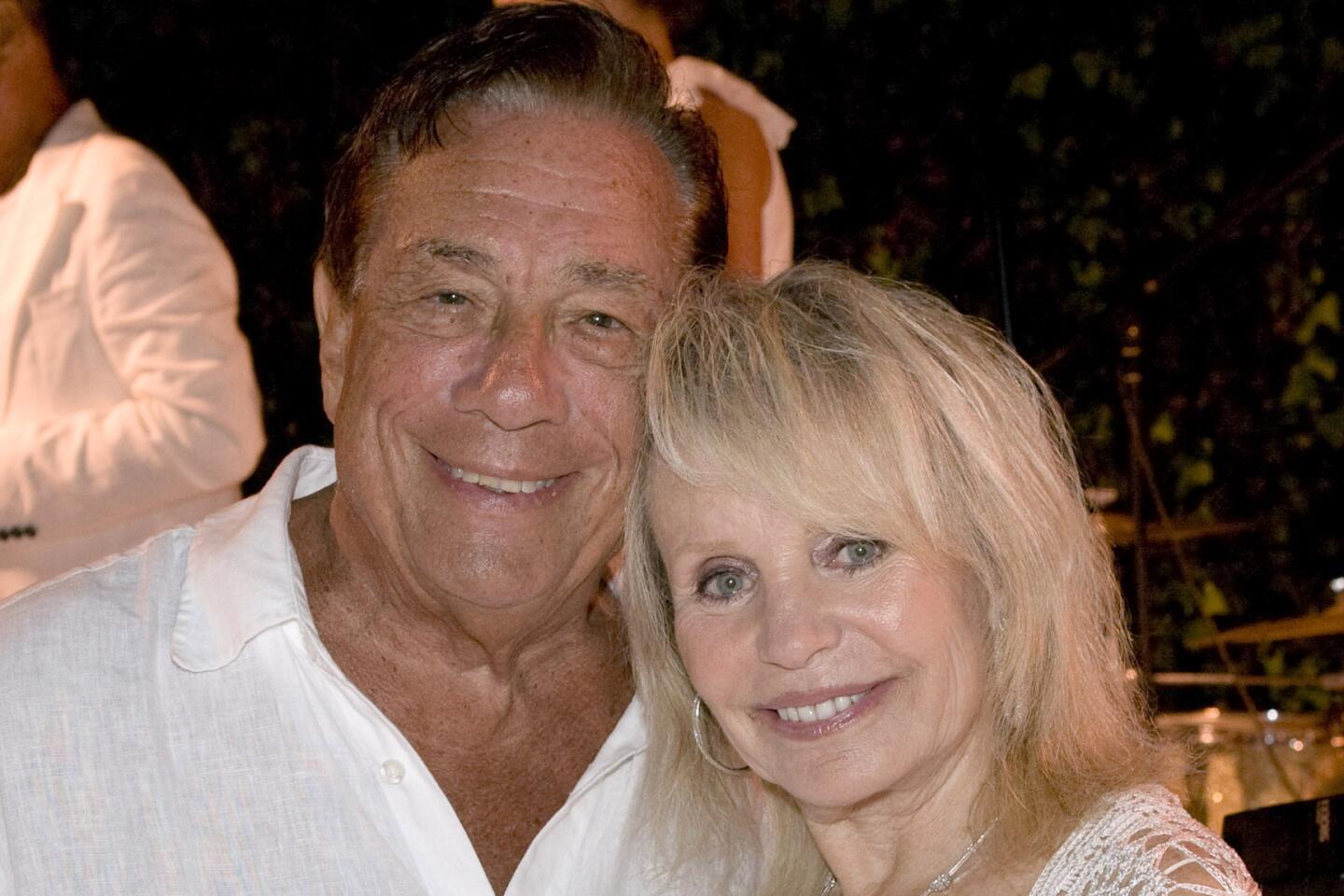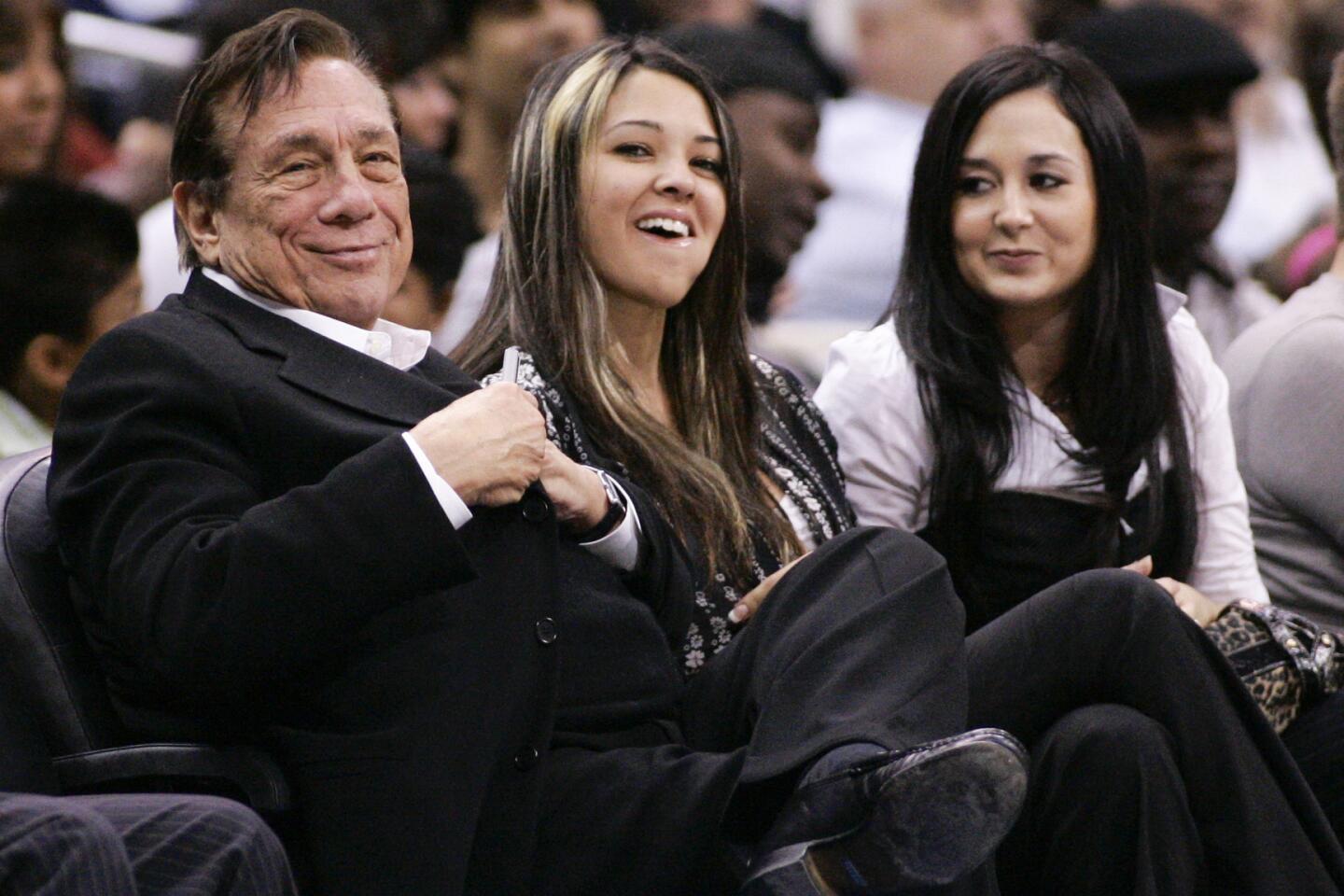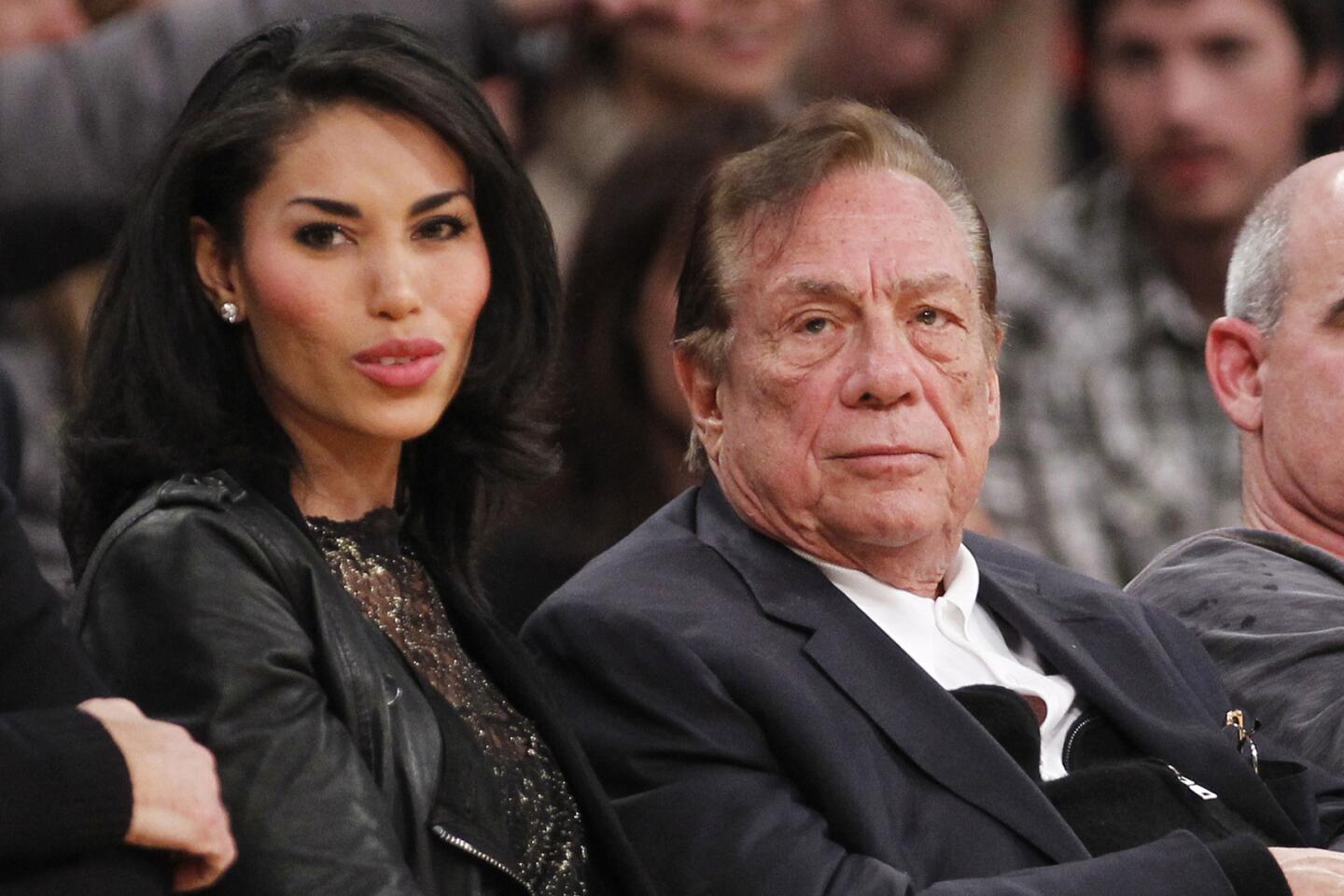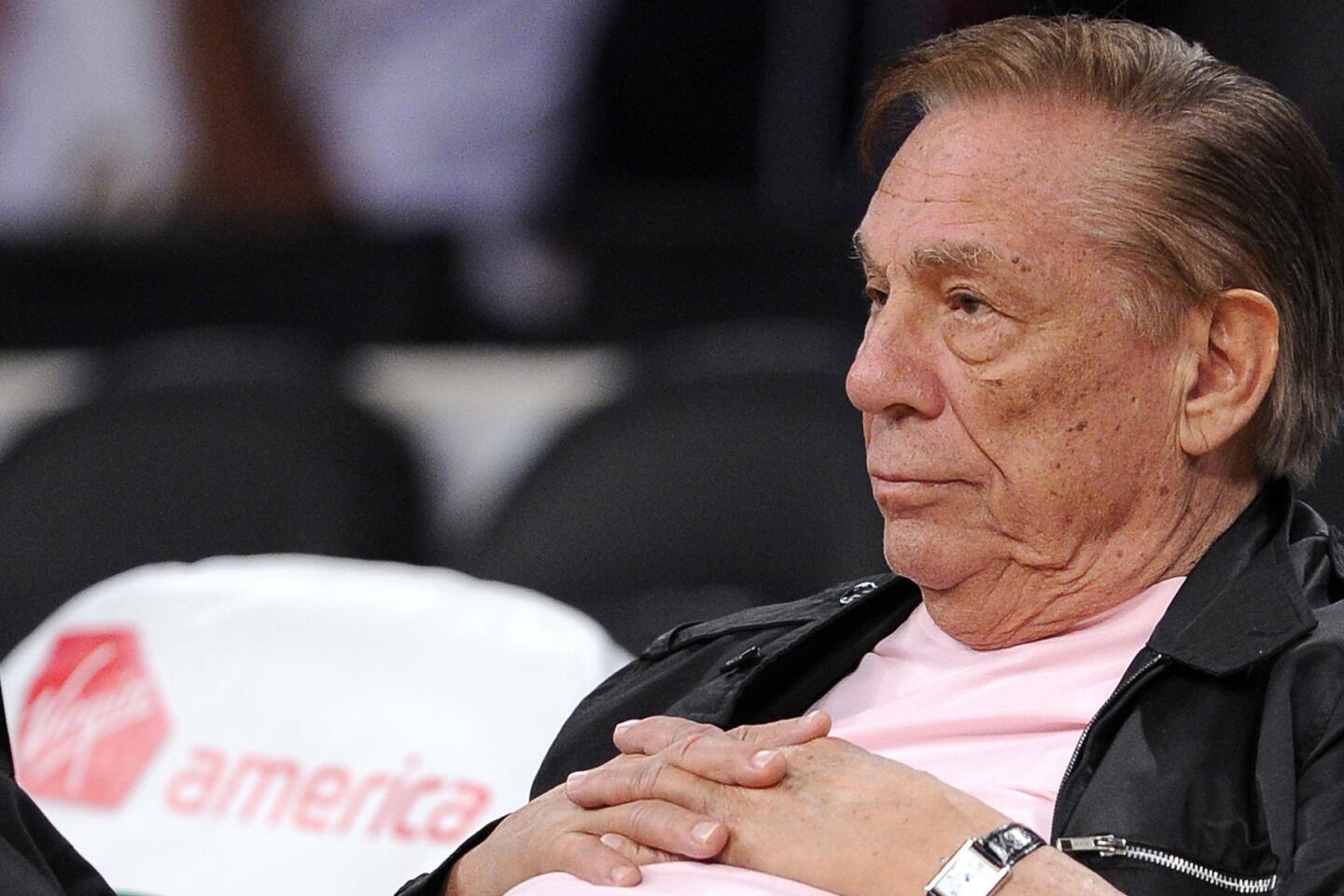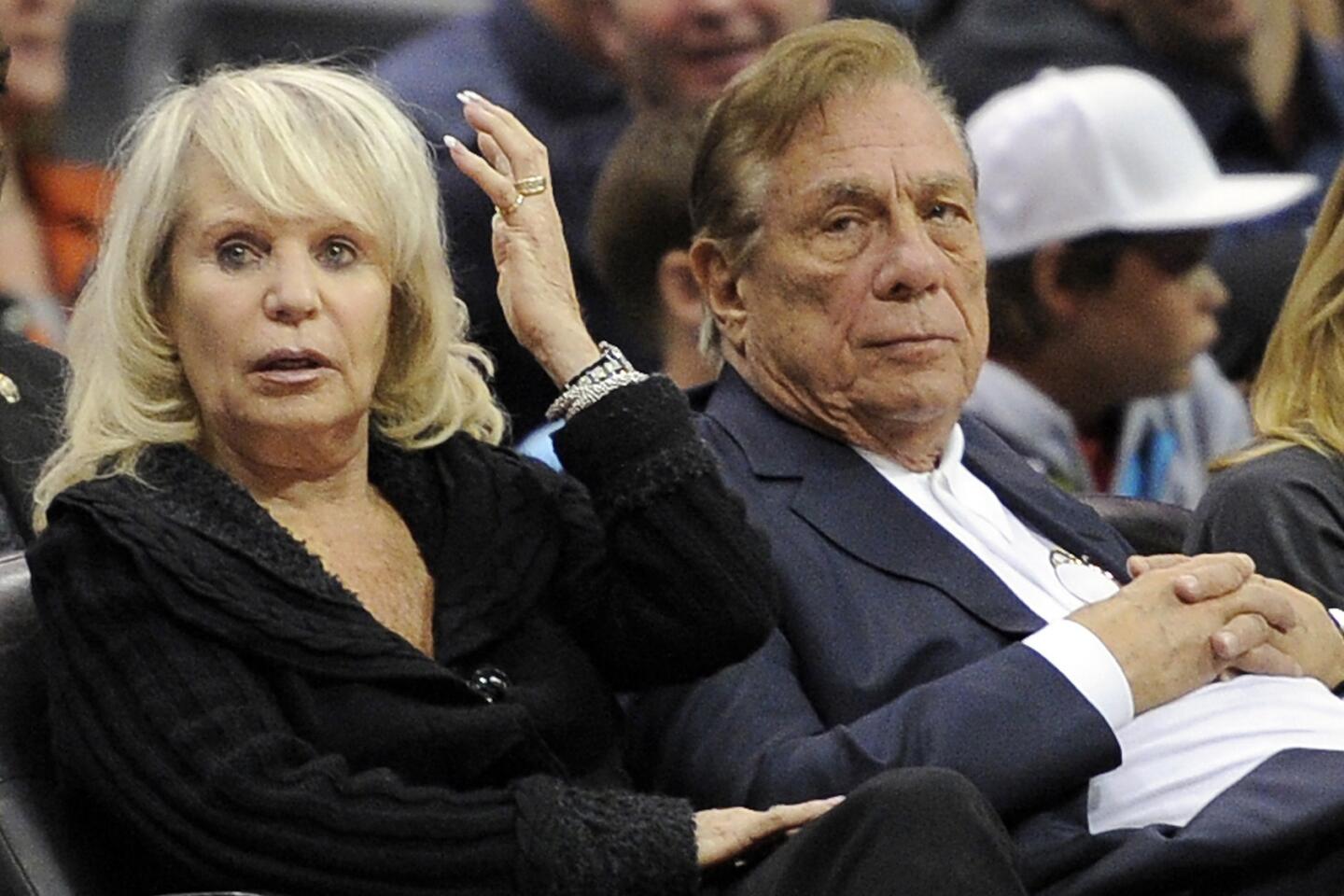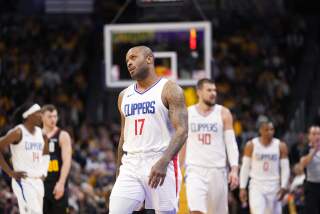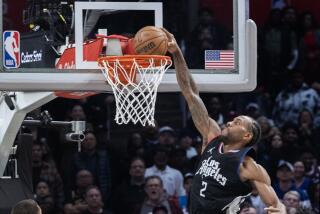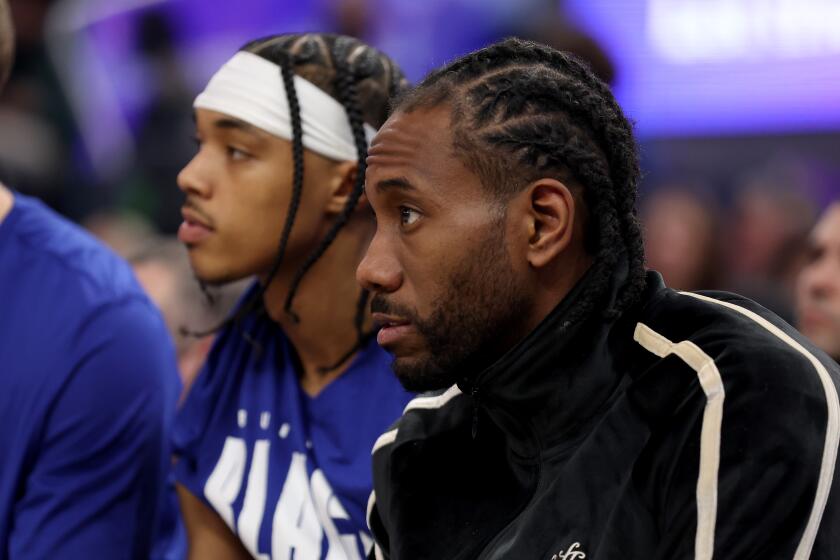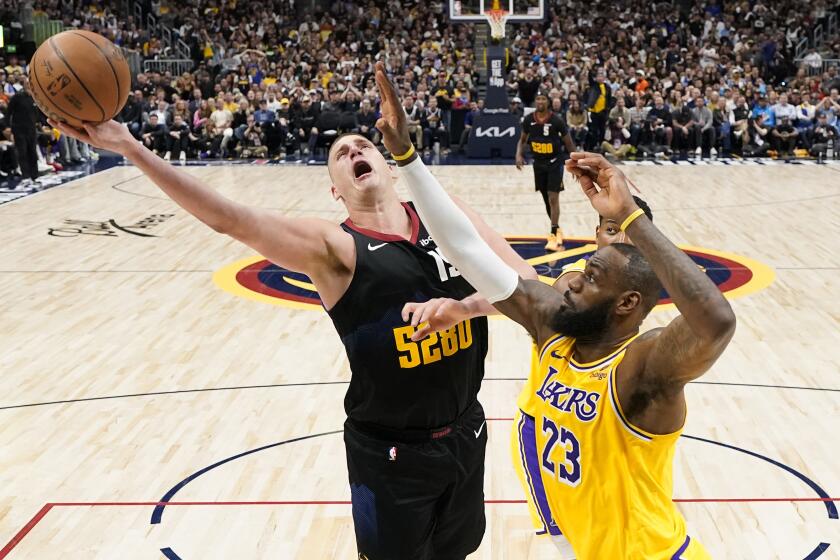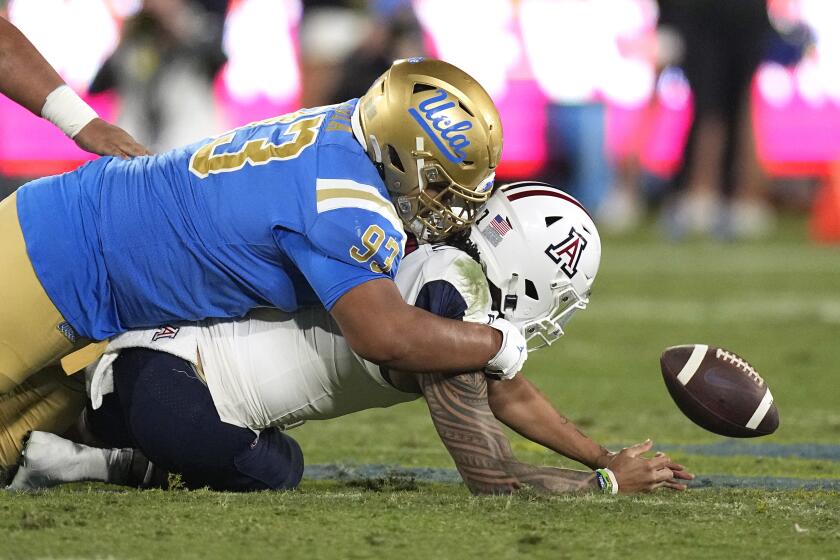Donald Sterling appears to concede on Clippers sale after court action
Donald Sterling has apparently given up his attempt to stop the $2-billion sale of the Clippers to Steve Ballmer on Wednesday after an appeals court rejected his latest petition.
The ruling ends a nearly four-month drama around the Clippers after Sterling’s recorded comments about blacks became public.
Two of Sterling’s attorneys, Maxwell Blecher and Bobby Samini, said in a joint statement they are “deeply disappointed that he has been deprived from ownership of the Clippers” without the appellate court reviewing “this harsh result.”
“Nevertheless, we are confident Donald will be completely vindicated in his federal case against the NBA,” the statement said. “More importantly, we believe that the ‘popular’ ruling in the probate matter is a serious blow to the privacy rights for all Americans.”
The attorneys did not elaborate on the statement.
Steve Ballmer’s attorney, Adam Streisand, said in a statement that “we are beyond thrilled and gratified and supremely confident that this is now over and done” and described Ballmer as the “undisputed owner” of the Clippers.
In five paragraphs, the state’s 2nd Court of Appeal dismissed Sterling’s petition less than 24 hours after it was filed.
“The evidence before this court indicates the sale of the Los Angeles Clippers to Steven Ballmer has closed,” the decision said. “Thus, there is nothing for this court to stay.”
The appeals court also declined to overturn last month’s ruling in Los Angeles Superior Court that Shelly Sterling acted properly in agreeing to sell the Clippers to Ballmer. Even if the sale hadn’t closed Tuesday morning, the court said, there wasn’t a convincing case to intervene.
Sterling didn’t return a request for comment through Samini.
The legal battles, however, are not over. Sterling filed a federal antitrust lawsuit against the NBA in May; the league countersued Monday.
If Sterling wanted to continue to fight the sale of the team he owned for 33 years, his options were slim.
He could file a similar petition with the state Supreme Court. But one attorney involved with the case described the odds of such a maneuver succeeding as one in 2 billion. Patrick Goodman, an expert on appellate law who teaches a probate course at UCLA, agreed.
“He could try, but it would be the longest of longshots,” Goodman said. “The sale has already happened and can’t be undone, so there’s little reason for the California Supreme Court to intervene.”
More to Read
Get our high school sports newsletter
Prep Rally is devoted to the SoCal high school sports experience, bringing you scores, stories and a behind-the-scenes look at what makes prep sports so popular.
You may occasionally receive promotional content from the Los Angeles Times.
